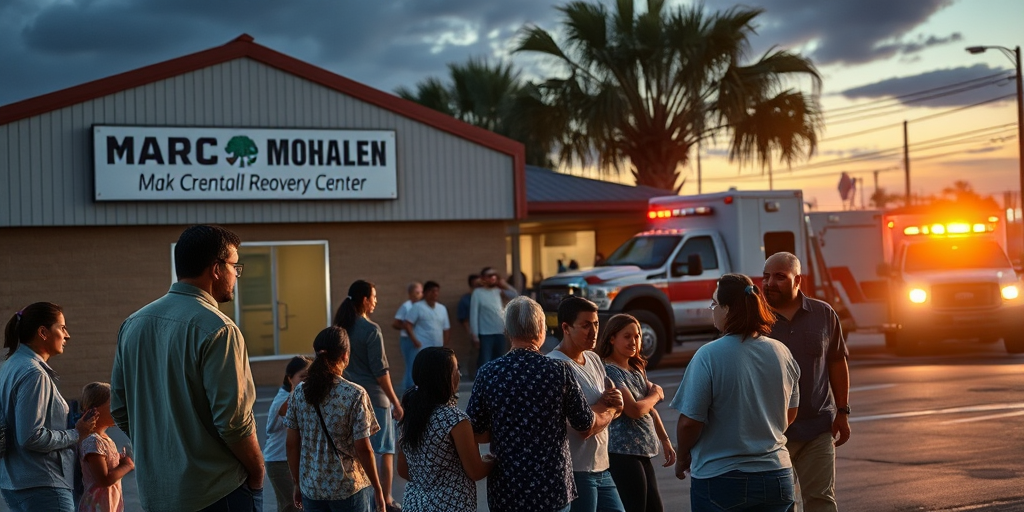FEMA Recovery Center Closure Challenges McAllen Residents Amid Ongoing Flood Efforts in Texas
The Federal Emergency Management Agency (FEMA) recovery center in McAllen, Texas, has permanently closed its doors, affecting many residents still grappling with the aftermath of recent flooding. The closure occurs as communities in the Rio Grande Valley (RGV) continue to rally around neighboring areas impacted by subsequent severe weather events and as recovery efforts intensify in other parts of Texas.
Lasting Effects of Regional Flooding
The McAllen FEMA recovery center’s closure comes at a critical time. Other centers in the Rio Grande Valley, including those in San Benito and Harlingen, will remain operational and continue to assist local residents affected by the floods. The enduring impact of flooding across Texas highlights both immediate needs and long-term challenges for Valley residents seeking support after natural disasters.
“We understand the need for ongoing support, and while it was a hard decision to close the center, we’re redirecting our resources to areas still open to provide effective assistance,” FEMA spokesperson Laura Stephens said in a recent interview.
Community Efforts and Regional Impact
As McAllen adapts to this closure, the city’s community and educational institutions have taken significant steps to mobilize assistance for affected areas. McAllen ISD has launched a “Fill the Bus” campaign to gather donations for flood victims, reflecting a robust local commitment to aid central Texas communities facing significant recovery challenges. This initiative has resonated across South Texas, as many Valley residents express solidarity with neighboring areas dealing with severe flooding.
Local law enforcement agencies are also extending their support to flood-stricken regions in Texas. The Pharr Police Department’s Mounted Patrol Unit, with the assistance of helicopters and specialized teams, has been deployed to Kerr County. Their efforts aim to bolster recovery operations and provide critical support in affected areas. Senior Mounted Patrol Officer Irving Segura highlighted the department’s dedication, saying, “Our duty extends beyond our community. In times of crisis, we stand ready to assist those in need wherever we can.”
State-Level Response and Legislative Actions
In response to widespread flooding across the state, as reported by RGV Noticias, over 100 individuals have died due to recent catastrophic floods affecting central Texas. Governor Greg Abbott has called for a special legislative session to address issues surrounding Hill Country flooding, redistricting, and the administration’s remaining priorities.
The governor’s legislative agenda aims to tackle both immediate and long-term challenges, emphasizing preparedness and adaptation in response to increasingly frequent extreme weather events. Experts caution, however, that while legislative actions signal progress, public attitudes and responses must evolve swiftly to match these growing environmental threats.
Culture of Preparedness and Future Implications
The McAllen FEMA recovery center’s closure underscores the importance of maintaining a culture of preparedness within communities. As Valley residents navigate these changes, continuing education on disaster readiness and resource availability remains a priority.
Organizations such as the Make-A-Wish RGV, through their “Summer of Wishes” campaign, have emphasized the power of local involvement, showcasing how united community efforts can foster resilience and hope amidst adversity.
Dr. Andrea Lopez, a sociologist specializing in community resilience, noted, “The Valley’s response to current issues exemplifies how communities can work collaboratively in times of crises. It’s not just about recovery; it’s about strengthening our collective response to future challenges.”
Continuing Support and Resources
To aid Valley residents seeking assistance, FEMA centers in San Benito, Harlingen, Pharr, and Weslaco remain operational, offering Monday through Saturday hours to ensure accessibility. These centers provide essential services including guidance on recovery processes and connections to additional resources.
Engagement with local organizations and initiatives remains a valuable resource for residents navigating recovery procedures and accessing needed aid. Additionally, the Texas Shrimp Association’s annual Blessing of the Fleet in Brownsville exemplifies regional traditions that strengthen communal bonds and highlight collective spirit during difficult times.
As the Valley reflects on recent events and the upcoming changes, the emphasis on community interest and persistent local impact is evident in shared stories of assistance and mutual support among regions in Texas. Continuing these efforts will be vital in addressing future challenges and reinforcing readiness across South Texas.
For further information, residents can contact nearby FEMA recovery centers or reach out to local organizations spearheading community initiatives. Valley leaders continue to urge the importance of community engagement and preparedness to ensure cohesive responses moving forward.







